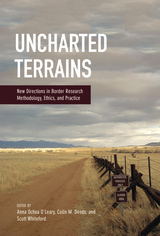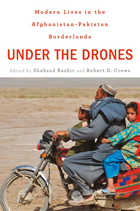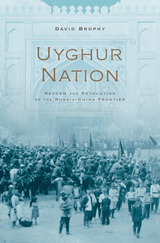3 start with U start with U

Each chapter raises methodological and ethical questions relevant to conducting research in transnational contexts, which can frequently be unpredictable or even volatile. The volume addresses the central question of how can scholars work with vulnerable migrant populations along the perilous US–Mexico border and maintain ethical and methodological standards, while also providing useful knowledge to stakeholders? Not only may immigrants be afraid to provide information that could be incriminating, but researchers may also be reluctant to allow their findings to become the basis of harsher law enforcement, unjustly penalize the subjects of their research, and inhibit the formulation of humane and effective immigration policy based on scholarly research.
All of these concerns, which are perfectly legitimate from the social scientists’ point of view, can put researchers into conflict with legal authorities. Contributors acknowledge their quandaries and explain how they have dealt with them. They use specific topics—reproductive health issues and sexually transmitted diseases among immigrant women, a study of undocumented business owners, and the administration of the Mexican Household Survey in Phoenix, among others—to outline research methodology that will be useful for generations of border researchers.

In the West, media coverage of Afghanistan and Pakistan is framed by military and political concerns, resulting in a simplistic picture of ageless barbarity, terrorist safe havens, and peoples in need of either punishment or salvation. Under the Drones looks beyond this limiting view to investigate real people on the ground, and to analyze the political, social, and economic forces that shape their lives. Understanding the complexity of life along the 1,600-mile border between Afghanistan and Pakistan can help America and its European allies realign their priorities in the region to address genuine problems, rather than fabricated ones.
This volume explodes Western misunderstandings by revealing a land that abounds with human agency, perpetual innovation, and vibrant complexity. Through the work of historians and social scientists, the thirteen essays here explore the real and imagined presence of the Taliban; the animated sociopolitical identities expressed through traditions like Pakistani truck decoration; Sufism’s ambivalent position as an alternative to militancy; the long and contradictory history of Afghan media; and the simultaneous brutality and potential that heroin brings to women in the area.
Moving past shifting conceptions of security, the authors expose the West’s prevailing perspective on the region as strategic, targeted, and alarmingly dehumanizing. Under the Drones is an essential antidote to contemporary media coverage and military concerns.

The meeting of the Russian and Qing empires in the nineteenth century had dramatic consequences for Central Asia’s Muslim communities. Along this frontier, a new political space emerged, shaped by competing imperial and spiritual loyalties, cross-border economic and social ties, and the revolutions that engulfed Russia and China in the early twentieth century. David Brophy explores how a community of Central Asian Muslims responded to these historic changes by reinventing themselves as the modern Uyghur nation.
As exiles and émigrés, traders and seasonal laborers, a diverse diaspora of Muslims from China’s northwest province of Xinjiang spread to Russian territory, where they became enmeshed in political and intellectual currents among Russia’s Muslims. From the many national and transnational discourses of identity that circulated in this mixed community, the rhetoric of Uyghur nationhood emerged as a rallying point in the tumult of the Bolshevik Revolution and Russian Civil War. Working both with and against Soviet policy, a shifting alliance of constituencies invoked the idea of a Uyghur nation to secure a place for itself in Soviet Central Asia and to spread the revolution to Xinjiang. Although its existence was contested in the fractious politics of the 1920s, in the 1930s the Uyghur nation achieved official recognition in the Soviet Union and China.
Grounded in a wealth of little-known archives from across Eurasia, Uyghur Nation offers a bottom-up perspective on nation-building in the Soviet Union and China and provides crucial background to the ongoing contest for the history and identity of Xinjiang.
READERS
Browse our collection.
PUBLISHERS
See BiblioVault's publisher services.
STUDENT SERVICES
Files for college accessibility offices.
UChicago Accessibility Resources
home | accessibility | search | about | contact us
BiblioVault ® 2001 - 2024
The University of Chicago Press









